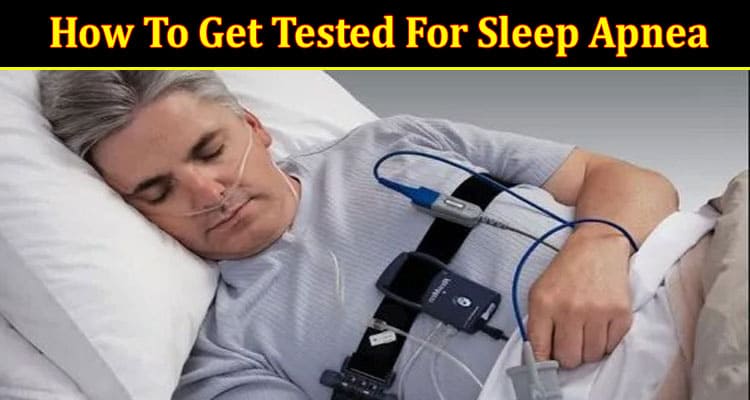Do snoring bothers you every day in your sleep and feel tired during the day? You may be suffering from sleeping disorder. Sleep apnea is a sleep disorder in which a person’s breathing is interrupted during sleep. It can lead to major sufferings, such as high blood pressure, heart disease, and stroke. It can also cause problems with work and social life.
Thankfully, there are many treatments available for this ailment these days that can improve this disorder and help you get relief. So if you think you may have sleep apnea, it is important to get tested.
To find out how sleep apnea can be tested, we got in touch with a sleep apnea dentist in San Antonio, Tx. So keep reading to learn more about how to get tested for sleep apnea and what to expect from the testing process.
What Is Sleep Apnea?
Sleep apnea is a disorder releted to sleeping that should be taken seriously as it affects over 18 million people in the United States alone.
Sleep apnea are of two types that are obstructive and central. Out of these two types, obstructive sleep apnea happens to most people that is caused due to the blocked airways. When the person falls asleep, muscle present in throat collapse which blocks the airways. As a result, signals are transmitted to brain to wake up for breathing to resume properly. This can happen hundreds of times per night, leading to sleep deprivation.
central apnea has found to be less common type of this disorder which is caused by a problem with the brain signals that control breathing. As a result, the person stops breathing during sleep which can lead to serious health implications.
Who Is At Risk For Sleep Apnea?
The exact cause behind sleep apnea is unknown but many factors are considered to increase the risk of sleep apnea.
Having excessive weight, enlarged tonsils, narrow airways, or a thick neck are considered to common causes of obstructive sleep apnea. People suffering from congestive heart failure, high BP, type 2 diabetes, or Parkinson’s disease are considered to be at a higher risk of developing obstructive sleep apnea. Other conditions like polycystic ovary syndrome (PCOS), prior history of stroke, and chronic lung diseases may also leave you with a higher risk for sleep apnea.
Central sleep apnea has found to be more common in men than women, especially middle-aged or old men.
How Is Sleep Apnea Diagnosed?
If you or someone you know struggles with snoring, gasping for air at night, or daytime sleepiness, it’s important to get checked for sleep apnea.
The doctor will first ask you about your symptoms and medical history to diagnose sleep apnea. Here will then evaluate the symptoms and recommend a sleep test. Also known as sleep study or polysomnography (PSG), this test monitors your breathing pattern and other vital signs in sleep. You will have to spend the night at a lab, clinic, or hospital where your body is attached with wires connected to a machine that can detect any irregularities in your breathing. It is a non-invasive test and there will be a sleep technician nearby to oversee the test.
It’s also possible to conduct a simple sleep test in your own home before you undergo polysomnography. If you feel tired throughout the day, you can ask another person to monitor you overnight for signs like snoring, or gasping sounds in sleep. There are also at-home test kits that can be used to monitor breathing. The results can be sent to the doctor to diagnose sleep apnea.
Once the diagnosis is confirmed, the doctor may conduct further tests like X-rays to find out possible causes this sleep related disorder.
What Are The Treatments For Sleep Apnea?
There are multiple treatment options that can help you breathe properly by keeping your airways open through the night.
Continuous positive airway pressure (CPAP) is common and effective device for treating sleep apnea. This machine increases air pressure in your airways by pumping a steady flow of air into your lungs through a small mask you wear in sleep. In some cases, patients are given a dental device that pushes their lower jaw forward to prevent the throat muscles from closing while they sleep. These are effective in mild to moderate cases found by scientist related to sleep apnea where patients feel uncomfortable using the CPAP machine.
If you think you have sleep apnea, it is best to get a sleep apnea test right away to find a diagnosis and initiate treatment at the earliest. Since sleep apnea has a lot to do with throat and jaw muscles, a dentist can help you with the testing. Stone Oaks Aesthetic has the best cosmetic dentists in San Antonio that can help you treat sleep apnea.
They work with a team of this sleep related disorder experts to form a diagnosis and then can provide you with oral appliances or a CPAP machine to improve your sleep and life quality. So if you live in San Antonio, head to the Stone Oaks Aesthetics clinic right away or visit their website to schedule a consolation with their expert dentists.

